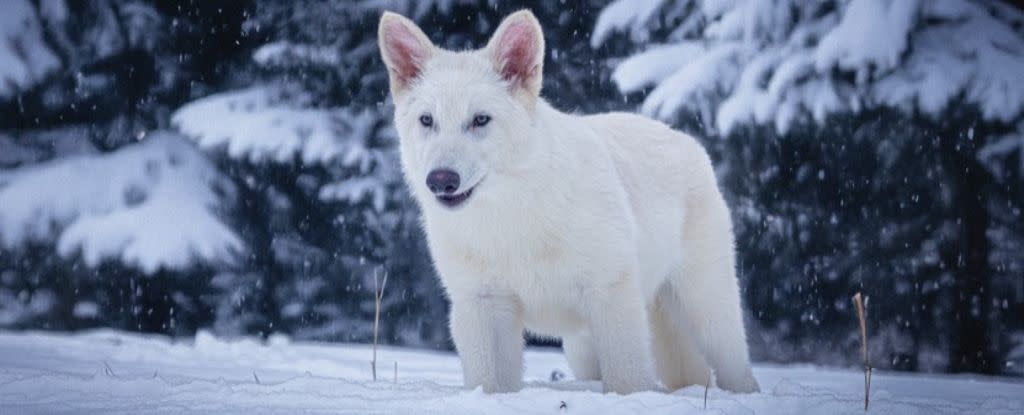Genetically engineered ‘Dire Wolves’ born in U.S.

Kathmandu: Three genetically engineered wolf pups resembling the extinct dire wolf have been born and are now living in a secure, undisclosed location in the United States, according to Colossal Biosciences, a biotech firm working to revive lost species. The pups, aged three to six months, are already around 80 pounds and are expected to grow to nearly 140 pounds in adulthood.
As reported by the Associated Press (AP), the project is part of Colossal’s broader efforts to recreate animals that resemble extinct species by using advanced genetic techniques. While the company claims these wolves bear physical similarities to dire wolves — large prehistoric predators that vanished over 10,000 years ago — independent scientists say this does not signal the true return of the species.
“You can’t actually bring back an extinct species — all you can do now is make something look superficially like something else,” said Vincent Lynch, a biologist at the University at Buffalo, who was not involved in the project.
Colossal researchers studied ancient DNA from dire wolf fossils, including a 13,000-year-old tooth from Ohio and a 72,000-year-old skull fragment from Idaho. Using CRISPR gene editing, they altered gray wolf cells at 20 genetic sites before implanting the engineered DNA into dog egg cells. The embryos were carried to term by domestic dog surrogates.
Despite the physical resemblance, the genetically engineered wolves lack the lived experience of hunting in the wild. “They’ll never learn the finishing move to take down a giant elk,” noted Matt James, Colossal’s chief animal care expert.
In a parallel development, Colossal also announced it had successfully cloned four red wolves using blood drawn from the critically endangered red wolf population in the southeastern U.S. The effort aims to expand genetic diversity within captive breeding programs.
Wildlife ethicists remain cautiously optimistic. University of Montana conservation expert Christopher Preston noted that while the new cloning process may be less invasive than past methods, it still involves sedating wild wolves — a difficult and risky procedure.
Colossal CEO Ben Lamm said the company recently met with U.S. Interior Department officials to discuss the project. Interior Secretary Doug Burgum praised the development on X (formerly Twitter), calling it a “thrilling new era of scientific wonder.” However, skeptics like Lynch warn that whatever ecological role dire wolves once played cannot simply be reinserted into today’s altered ecosystems.
Source: AP

